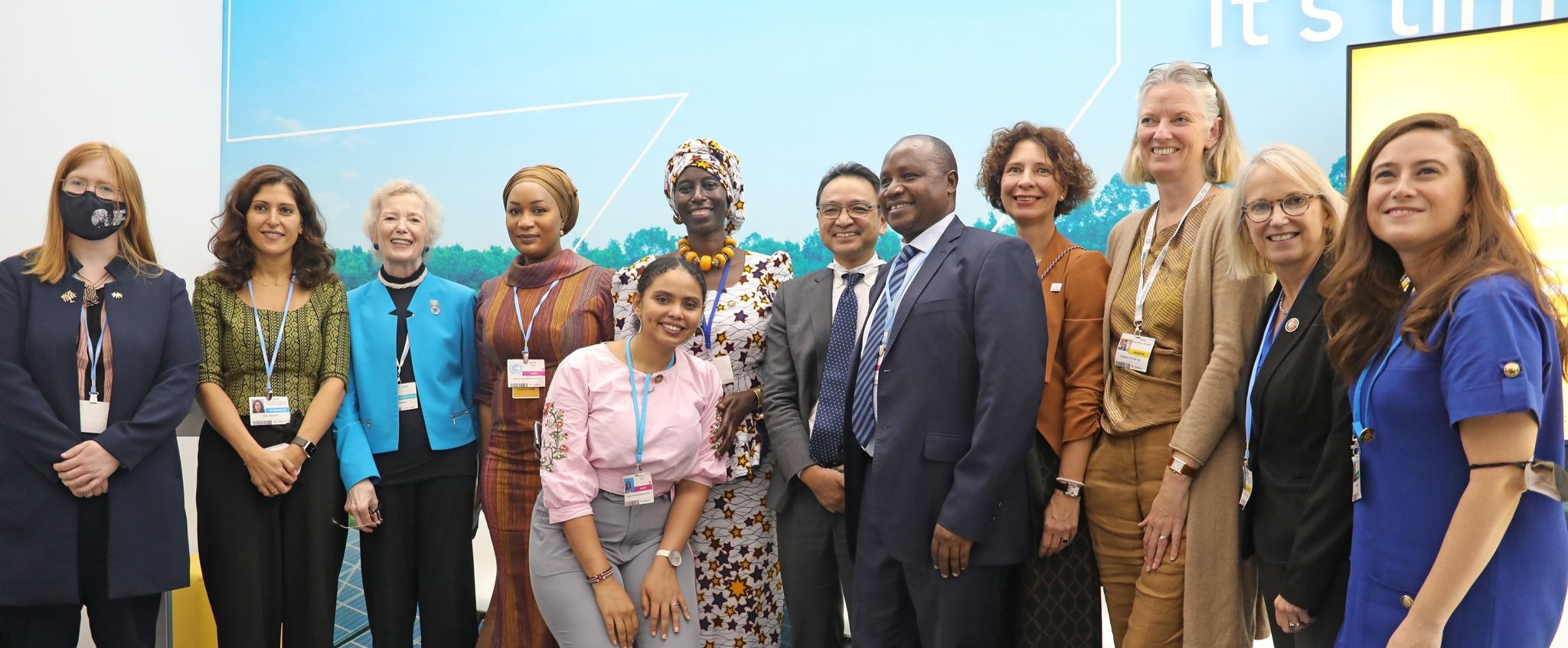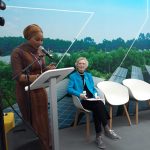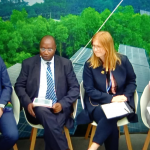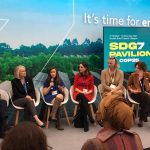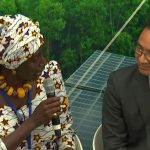In the framework of the United Nations Climate Change Conference, the United Nations Industrial Development Organization (UNIDO), ENERGIA International Network on Gender and Sustainable Energy (ENERGIA), and the Global Women’s Network for the Energy Transition (GWNET) co-hosted an event at the UNFCCC SDG7 Pavilion to catalyze action towards gender equality and women’s empowerment.
Moderated by Mary Robinson, former President of Ireland, the COP side event “Enhancing gender equality and women’s empowerment to accelerate a just, inclusive and climate resilient energy transition” presented the Gender and Energy Compact and its multiple signatories. This compact, developed in the realm of the UN High Level Dialogue on Energy, is one of its kind in putting women and gender equality at the center of achieving SDG7: Ensure access to affordable, reliable, sustainable and modern energy for all.
Women are in the frontlines of energy access, as energy consumers, as household energy managers and as energy providers. At the same time, women have less access to energy, suffer most from energy poverty and energy services than men and the energy space is still male-dominated. If the world is to reach SDG7 by 2030, women must be part of the energy transition at all levels. The Gender and Energy Compact commits to supporting and accelerating action towards a just, inclusive and gender-equal energy transition.
Among the undersigning parties are the Governments of Canada, Ecuador, Iceland, Kenya, Nepal and Sweden. “Kenya believes that gender transformative approaches should be included in all energy transition plans“ affirmed Paul Mbuthi, Deputy Director of Renewable Energy, of the Kenyan Ministry of Energy. “The Gender and Energy Compact is a commitment of shared values and principles of the various supporting stakeholders. Kenya is happy to be associated with these shared values. We therefore reiterate our endorsement of the compact and commit to implement the principles thereto“.
International bodies such as the African Development Bank, UN Women and the UN Environment Programme as well as the International Renewable Energy Agency, the Private Financing Advisory Network, the International Institute for Sustainable Development, the Clean Cooking Alliance, REN21, the SDG7 Youth Constituency and Student Energy are among the non-state signatories.
Truus Huisman, Chief Communications Officer of the IKEA Foundation gave a lively illustration of the current situation of many women across the globe. “Imagine you’re a 11-year-old girl from Uganda, and your parents own a small farm. The farm is in a remote area and has no access to electricity. Using a diesel genset, some dirty electricity is generated for the water pump. The time and physical burden for most of the agricultural processing fall on the shoulders of you and your mother. After a long day of hard work, the sun goes down and your family relies on kerosene lamps to light up your home. But can only afford to light it for one hour as kerosine is very expensive. So, you can’t read and it‘s extremely unsafe for you and your mother to leave the house. The day ends, progress stops,” she explained “Unfortunately, this is not a unique situation. It’s holding back progress towards ending poverty, equality and carbon emission reduction. We strongly believe the world must and CAN transition to net-zero economies. However, this can only work if the transition is fair and inclusive,” Truus Huisman concluded.
Experts, leaders and stakeholders highlighted the importance of investments in energy services to meet women’s energy needs for cooking, health, education, water supply and lighting. They agreed that bold, collaborative and measurable efforts are needed. “Advancing gender equality is rewarding for everyone – but it takes work; not just lofty promises” summarized Gudmundur Ingi Gudbrandsson, Minister of the Environment and Natural Resources, Iceland.
The coalition aims to take action towards a just, fair and inclusive transition addressing the following areas:
- Energy and time poverty, as well as drudgery of women are eliminated by increasing women’s access to and control over sustainable energy products and services.
- Countries and regions (re)formulate and adopt more inclusive and gender-responsive energy access and transition pathways, strategies and policies.
- Women-owned and -led businesses have increased access to productive resources, such as finance, sustainable energy, entrepreneurial capacity and business development services.
- Career advancement avenues for women working in the energy sector are created: women enjoy decent and productive employment; workplace policies and practices support recruitment and retainment of women, women are equally involved in policy- and decision-making.
- Knowledge, mechanisms, tools, and sex-disaggregated data are more available and of higher-quality.
Jennifer Unelius, Climate Change Advisor, National Gender and Climate Change Focal Point UNFCCC, Swedish Environmental Protection Agency called out to all state and non-state entities: “Sustainable energy plays a key role not only in mitigating climate change but also in alleviating poverty. Through sustainable energy value chains we can improve women’s livelihoods. Sida is a founding signatory of the compact and we encourage everyone to be part of the compact”.
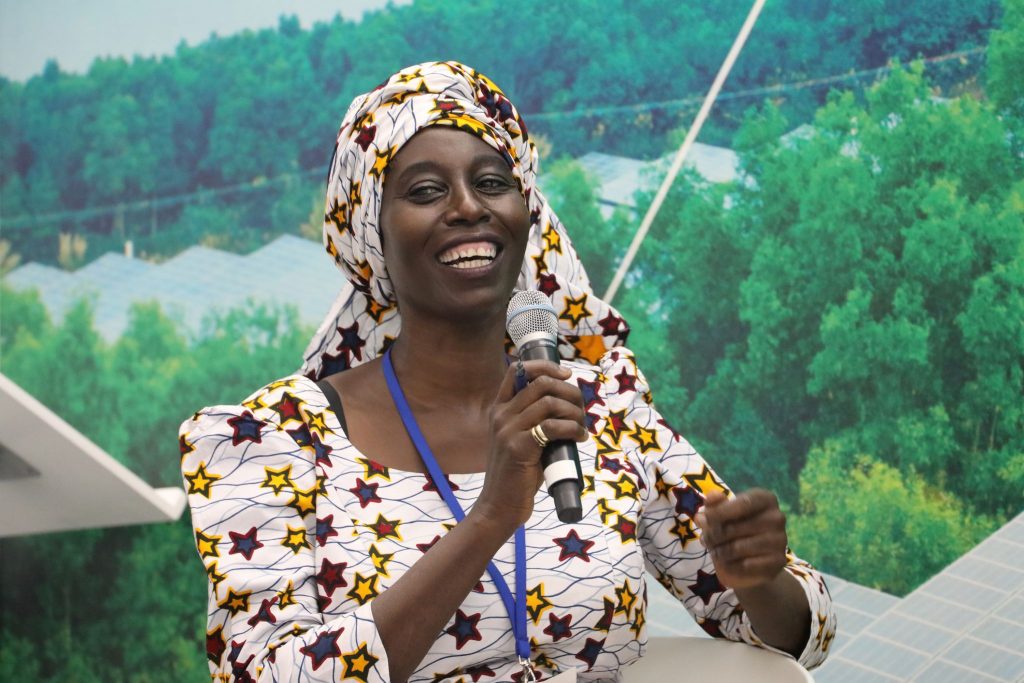
In closing, Sheila Oparaocha, International Coordinator at ENERGIA emphasized that “we must be very clear with the international community, member states and organisations that we are not going to achieve SDG7, let alone have a just inclusive energy transition, if gender equality and women’s empowerment are not front and center. Front and center in what we have heard and individuals we have seen, where women are decision-makers, women are investors, women are providers of energy services.”


